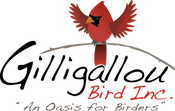It’s a wonderful time of year to be outdoors and enjoying nature. In addition to the green spaces, blue skies, and wildlife activity, it is a fragile time of year as new editions are brought into this beautiful world we call home.
As birders, we have been keeping a close eye on the breeding and nesting processes throughout the spring thus far and now we are anticipating or witnessing the arrival of this year’s brood of chicks from our neighbourhood nests.
In addition to birds, deer fawns and many other babies from the animal kingdom are beginning to drop, leading us to our annual public service announcement and recommendations regarding these beautiful, but fragile new creatures.
While none of us would purposely inflict any harm on any member of the animal kingdom, especially those so new to the environment, the fact of the matter is; sometimes we do. As we stumble upon fledglings fluttering about on the ground, seemingly without their mothers, our instinct is to help them out in some way shape or form.
When we interfere with nature in circumstances like this, it often is fatal to those babies as they get separated from their mother.
We must always remember that nature has its way of surviving and even if a fledgling is letting out a distress call and the mother is seemingly nowhere to be found, you can assure she is not far away. In most cases, she is simply waiting for us to vacate the area so she can swoop in and take over her motherly duties.
When It’s OK to Handle Fledglings
Despite everything, there are a few rare instances where safely and carefully handling fledglings is acceptable. The first is if they are in imminent and immediate danger by means of a predator such as a house cat. In these cases, before physically touching the birds, do your best to usher or ‘shoo’ them into a safe area or remove the predator where possible.
The second situation is if you find a fledgling with noticeable injuries. In these cases, use your best judgment and carefully box the bird and bring it to a local rehabilitation centre. Do not attempt to rehabilitate or feed the bird on your own, always leave it to the professionals at facilities such as Ottawa’s Wild Bird Care Centre.


Comments (0)